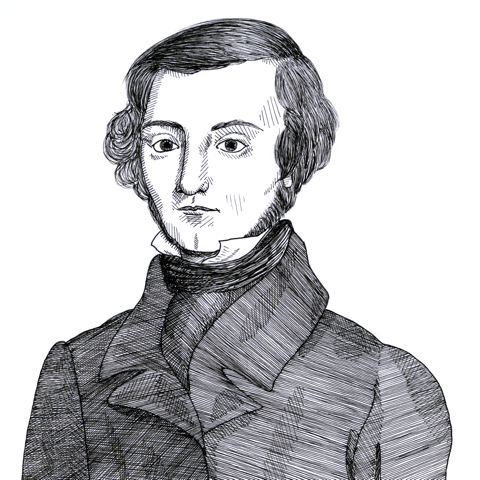
Tocqueville on centralization as the natural form of government for democracies (1835)
Found in: Democracy in America: Historical-Critical Edition, vol. 1
Alexis de Tocqueville (1805-1859) believed that the natural form of government for a democratic people was one which was centralized, uniform and strong:
Politics & Liberty
I have shown that equality suggested to men the thought of a unique, uniform and strong government. I have just shown that it gives them the taste for it; so today nations are tending toward a government of this type. The natural inclination of their mind and heart leads them to it, and it is enough for them not to hold themselves back in order to reach it.
I think that, in the democratic centuries that are going to open up, individual independence and local liberties will always be a product of art. Centralization will be the natural government.